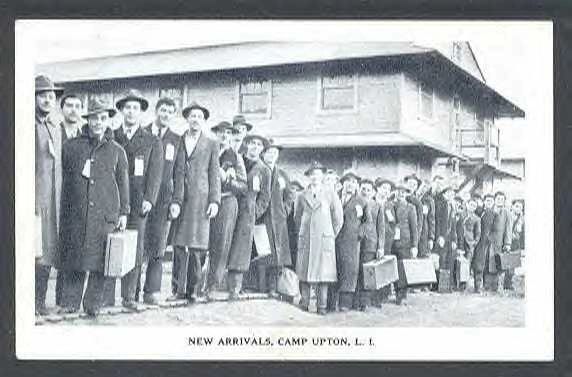Excursions: Welcome to Camp Upton

Last year when I got married, I moved out of New York City to the east end of Long Island, to ...wait for it...The Hamptons.
Recipe Index:
Applesauce
Barbecue Sauce
Beach Plum Jelly
Bluebarb Pie
Blueberry Pancakes
Chocolate Bread Pudding
Edible Flowers
Maple Snow Cones
Marmalade
Mussels in White Wine
Nicoise Salad
Omelettes
Peasant Bread
Pesto/Pistou
Rasberry Rhubarb Crumble
Sea Robins
Stick To Your Ribs Ribs
Swedish Saffron Buns
Tate's Chocolate Chip Cookie
Venison Stew
Vintage Recipes:
Clam Pie
Corned Pork & Cabbage
Mullein
Old East Hampton Cake
Smoked Eel
From The Garden:
Bok Choy Flowers
Lavender Lemonade
Radish Leaves
Zucchini Corn Bread
Excursions:
Beer Tasting
The Big Duck
Camp Hero
Camp Upton
Clambake
Dead Whale
Food Trucks
Hamptons Witch Trial
Historic Southampton
Mecox Cut is Open
Mushroom Picking
Scalloping
Seal Release
Shinnecock Nation
The Witch's Hat
Nature:
Rhododendrons

Having lived out here on the East End now for the last two and a half years, I've often felt like the first of my family to settle on Long Island. Everyone else from my father's side either lives in New England or has moved out west, while my mother's side of the family is still firmly ensconced in Sweden.
But I'm not the first Singh-Roy to come to the East End. My uncle Selden Singh-Roy spent time out here many years ago as an army recruit in training at Camp Upton in Yaphank, New York.
Seldon joined the army like many young men did at the beginning of World War II. Living in NYC, he and other men from the tri-state area were transported by train to Camp Upton for their basic training, before shipping overseas.

Camp Upton was built in 1917. Named after Emory Upton, a Union general in the Civil War, the camp was built to house and train soldiers before heading to Europe for the Great War.
At the beginning of World War I the U.S. had no large standing army, so Camp Upton was built to house and train some 37,000 men. The major unit mobilized was the 77th Infantry Division, made up mostly of NYC and Long Island troops.
One of the camp's most famous soldiers at that time was songwriter Irving Berlin, who was drafted in 1917. At age 30, The U.S. military didn't really want Berlin to fight so much as they wanted him to do some good P.R. for them.

Composer Irving Berlin leads a group of servicemen at Camp Upton
So while stationed with the 152nd Depot Brigade at Camp Upton, Berlin composed an all-soldier musical revue titled "Yip Yip Yaphank", as a tribute to the U.S. Army. The show introduced the classic song "Oh, How I Hate to Get Up in the Morning" and within a year was playing on Broadway.
After World War I, Camp Upton was closed in 1921, demobilized and all the buildings were auctioned off and removed. Many of the buildings from Camp Upton were moved over to Fire Island to build the community that would eventually become Cherry Grove, NY.

Then in 1940 Camp Upton was put back into service when the U.S. began mobilizing to enter into World War II. It was during this time what my uncle Selden trained there.
I remember my father recounting to me memories he had of visiting his brother at the camp when he was a young teen. He, my aunt Cynthia and my grand parents paid Selden a visit out here before he and his unit were deployed.
All my father remembers of the visit was the wide open spaces out here including miles and miles of farmland. For my dad, a NYC kid who had lived his entire life in tenements at that time, it must have been like visiting the moon.

Seldon "Dicky" Roy, TEC5, Technician Fifth Grade or Tech Corporal, U.S. Army
Unfortunately I never met my uncle. Selden was shipped overseas, but because he had a background in art and design, having attended Pratt Institute, he was trained as a mapmaker for the war. My grandparents hoped this would keep him safe, keeping him out of direct fire. Sadly it was not the case. He served in Italy and was killed during the Battle of Monte Cassino in 1944, when a bomb hit the building he was stationed in during the fighting. He died shortly afterwards from his injuries.

After World War II ended Camp Upton served as a convalescent and rehabilitation hospital. In 1946 it was closed and ownership of the facility was turned over to Brookhaven National Laboratory, which is still there to this day. It's really too bad that not much remains at the site to remember the camp and all that came from it besides this historical marker.


